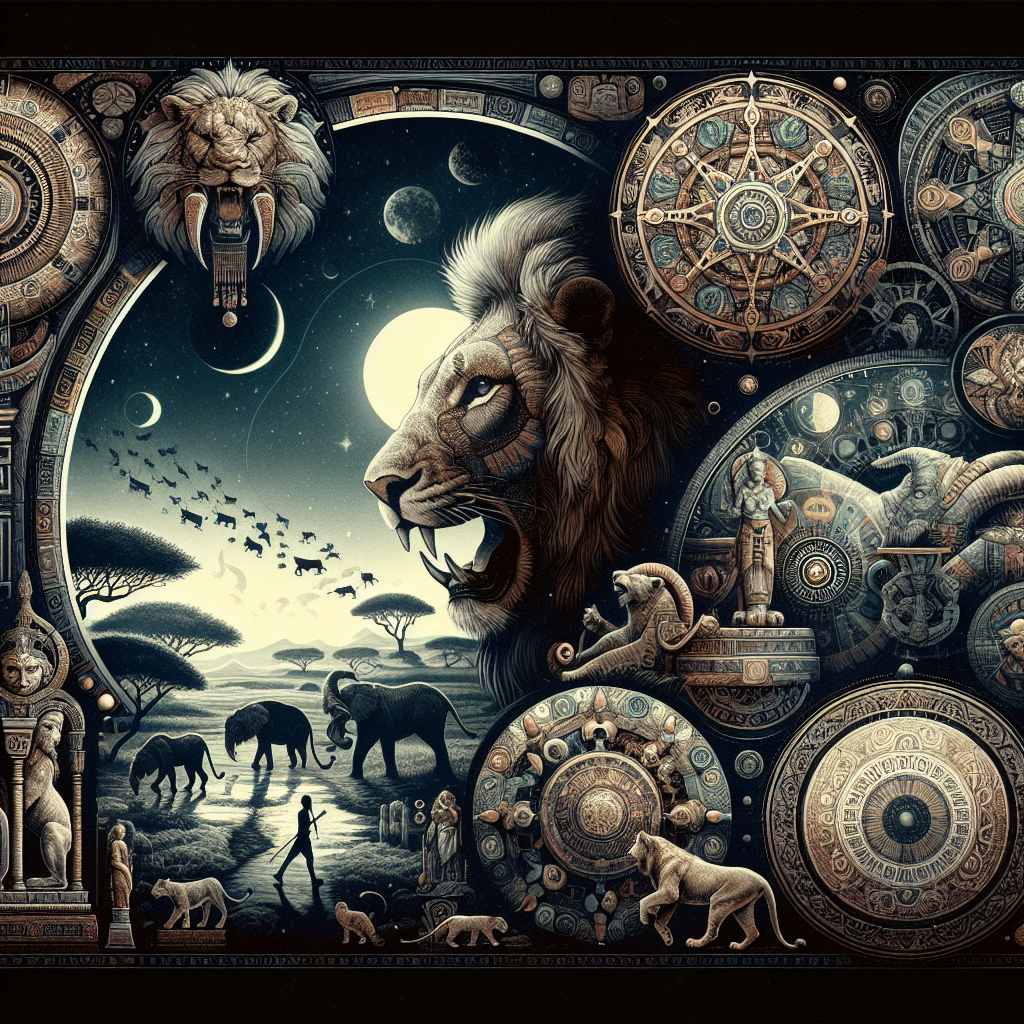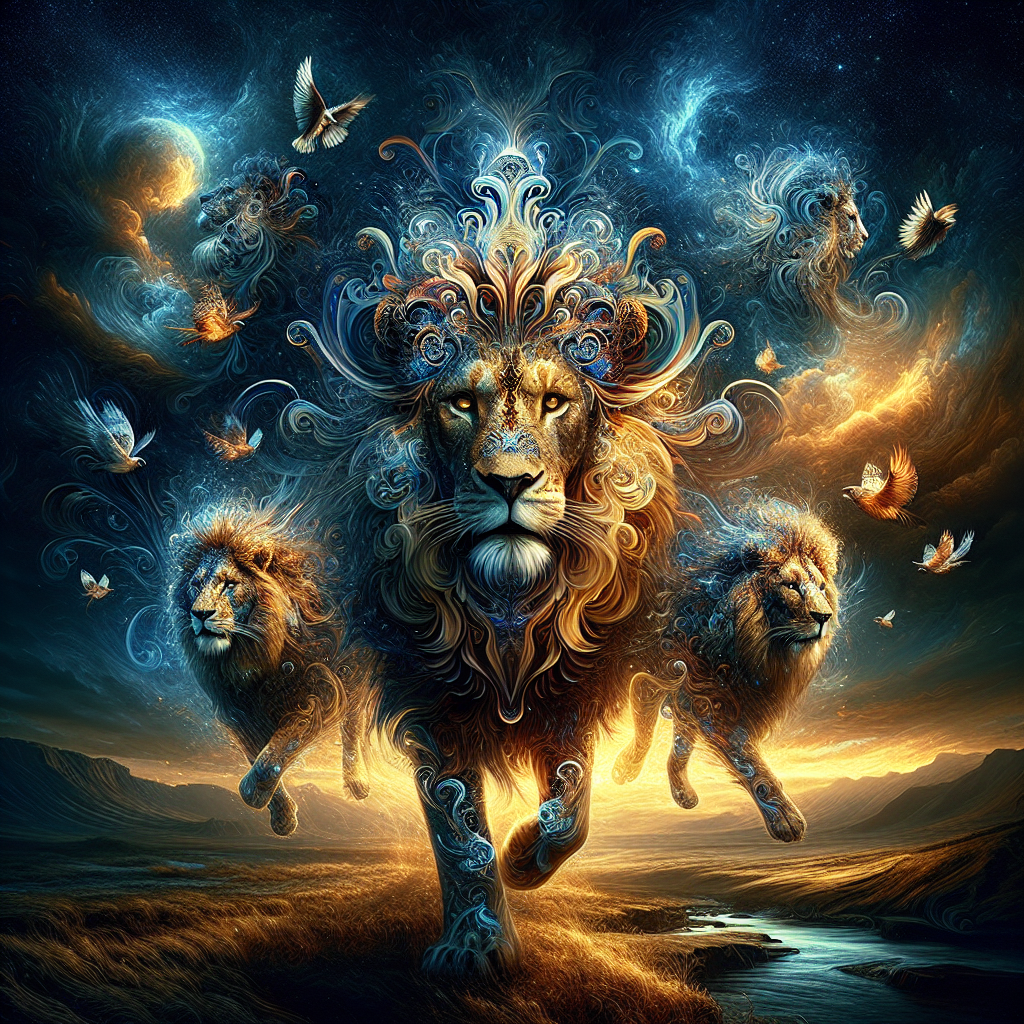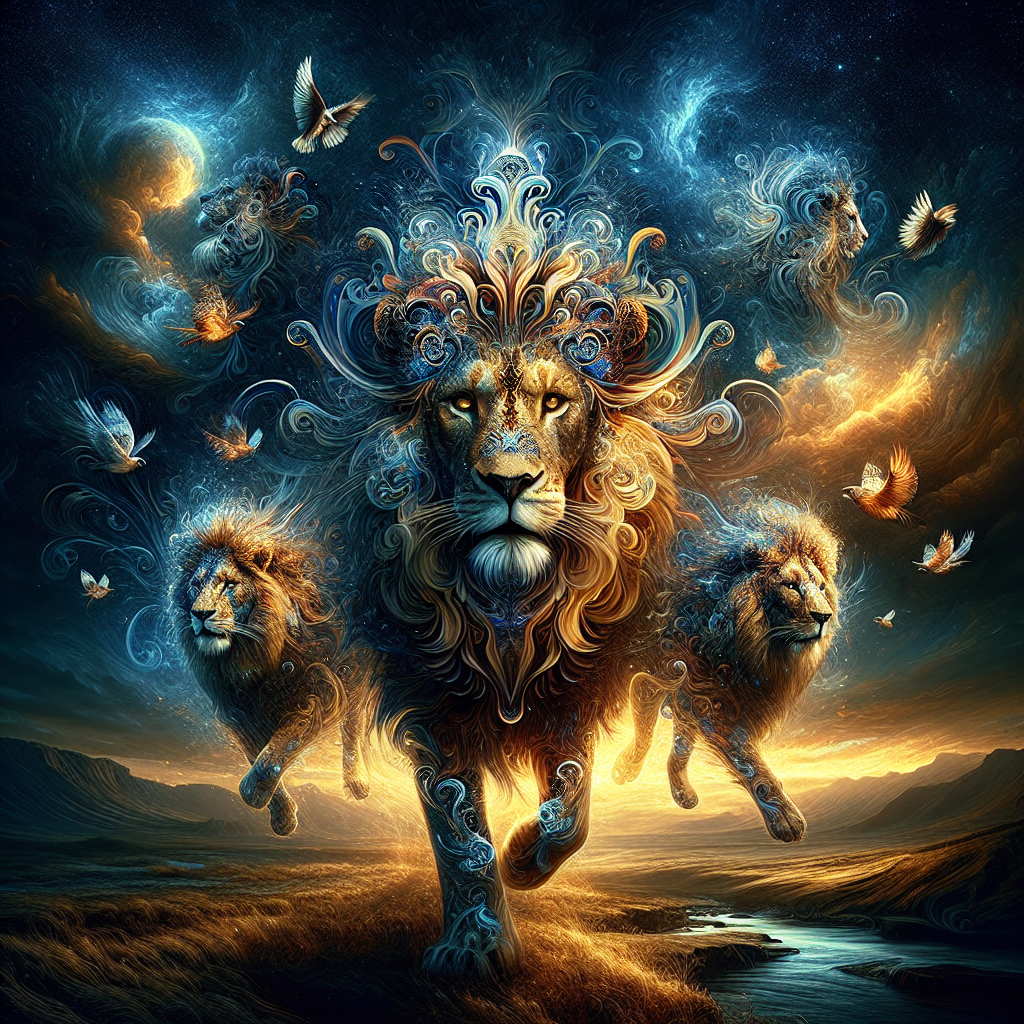Ever wondered about the captivating stories and legends surrounding lions? In this article, we explore the enthralling world of lion myths and legends through a cultural lens. From Africa to Asia, these majestic creatures have been revered and feared, becoming symbols of power, wisdom, and bravery in various cultures. Join us as we unravel the ancient tales and beliefs that have shaped our perception of lions throughout history.

Introduction to Lion Myths and Legends
Lions have captivated human imagination for centuries and have become ingrained in our collective consciousness through myths and legends. These majestic creatures, with their regal appearance and powerful presence, have served as protagonists in countless tales across various cultures. From the majestic Nemean Lion of Greek mythology to the revered Simba of African folklore, lions have taken on diverse roles and symbolic meanings in different societies. In this article, we will explore the rich tapestry of lion myths and legends from a cultural perspective, delving into their significance, representation, and the variations that exist across different societies.
Importance of Lions in Different Cultures
Lions hold immense importance in numerous cultures around the world, featuring prominently in their mythology, folklore, and religious beliefs. In many African cultures, lions are revered as symbols of strength and courage, often associated with tribal chiefs and warriors. The lion’s roar, for instance, holds great significance, representing authority and power. In Ancient Egypt, lions were seen as sacred animals, believed to be protectors of pharaohs and symbols of royalty. From Asia to the Americas, lions are regarded with awe and admiration, playing key roles in cultural narratives and traditions.
Roles of Lions in Mythology and Folklore
Lions have assumed various roles in mythology and folklore, each carrying unique significance. In ancient Greek mythology, the Nemean Lion was a monstrous beast that terrorized the region of Nemea until being slayed by Heracles as part of his twelve labors. This lion’s invincibility made it a symbol of unbeatable strength. In contrast, African folklore often portrays lions as wise and cunning characters, demonstrating both powerful physicality and intelligence. The portrayal of lions in different mythological contexts showcases the versatile and multi-dimensional interpretation of these majestic creatures.
Symbolic Representations of Lions
Lions have long been associated with numerous symbolic representations, embodying a wide range of virtues and qualities. Their regal demeanor and majestic appearance often make them symbols of nobility, leadership, and royalty. The lion’s mane, in particular, can symbolize wisdom and maturity. Additionally, due to their position at the pinnacle of the food chain, lions can represent power, dominance, and the balance of nature. Across cultures, lions have also been linked to concepts of courage, bravery, and protection, making them revered symbols in various aspects of human life.

Significance of Lion Stories
Lion stories hold deep significance in cultures around the world, serving as vehicles for imparting morals, values, and cultural identity. These stories often illustrate bravery, honor, and the triumph of good over evil. Through lion myths and legends, communities pass down their traditions, beliefs, and historical narratives to subsequent generations. Such stories not only entertain and captivate but also provide a sense of shared heritage and cultural pride, reinforcing the importance of lions in the fabric of society.
Differences in Lion Mythology across Cultures
While lions hold universal admiration, there are notable differences in their mythology across cultures. In African cultures, lions are often portrayed as respected and revered creatures, symbolizing strength and leadership. In contrast, in some Asian cultures, lions are depicted as mythical creatures with supernatural powers, guarding temples and bringing good fortune. Greek and Roman mythology portray lions more often as fearsome adversaries, symbolizing chaos and destruction. These variations reflect the diverse perspectives and cultural nuances granted to lions across different societies.
Ancient Civilizations and Lion Worship
Lions held significant religious and cultural importance in ancient civilizations. In Ancient Egypt, statues of lion-headed deities like Sekhmet represented power and protection, while the Sphinx, with its lion body and human head, was a revered symbol of wisdom. Similarly, in Mesopotamia, lion motifs adorned temples and palaces, symbolizing the strength and might of the ruling kings. The presence of lion worship in ancient cultures showcases the reverence and awe that these creatures commanded, shaping the beliefs and practices of societies long gone.
Representation of Lions in Art and Literature
Lions have been a subject of fascination for artists and writers throughout history, inspiring countless works of art and literature. From cave paintings in prehistoric times to intricate sculptures in classical civilizations, lions have been meticulously crafted to capture their power and beauty. In literary works, lions often serve as allegories, representing various themes such as courage and heroism. Shakespeare’s “The Tragedy of Macbeth,” for example, features the motif of a lion as a symbol of bravery and kingship. The representation of lions in art and literature continues to captivate audiences, perpetuating their timeless allure.
Lions as National Symbols
Numerous countries have adopted lions as national symbols, signifying their strength, heritage, and national identity. The lion is proudly portrayed on national flags, coats of arms, and emblems of countries such as England, Belgium, and Sri Lanka. These majestic beasts serve as powerful visual representations of the values and aspirations of these nations. By adopting the lion as a national symbol, countries not only pay homage to the historical significance and cultural importance of these animals but also project a sense of pride, unity, and resilience.
Lions in Contemporary Culture
Lions continue to hold a prominent place in contemporary culture, with their image and symbolism permeating various fields. From corporate logos to sports team mascots, the lion’s representation is used to convey attributes such as strength, determination, and success. In popular media, lions have been iconic characters in films and literature, further solidifying their place in our collective imagination. Whether it is the enduring appeal of the Lion King or the roaring symbol of bravery and loyalty in the Harry Potter series, lions remain enduring and cherished figures in modern culture.
In conclusion, lion myths and legends offer us a captivating window into the diverse cultural perspectives that have shaped our understanding of these majestic creatures. From symbolizing power and nobility to representing courage and wisdom, lions hold a universal fascination that transcends borders and continents. As we explore the rich tapestry of lion mythology, we gain insights into the values, beliefs, and aspirations that have woven these magnificent animals into the very fabric of human culture.

